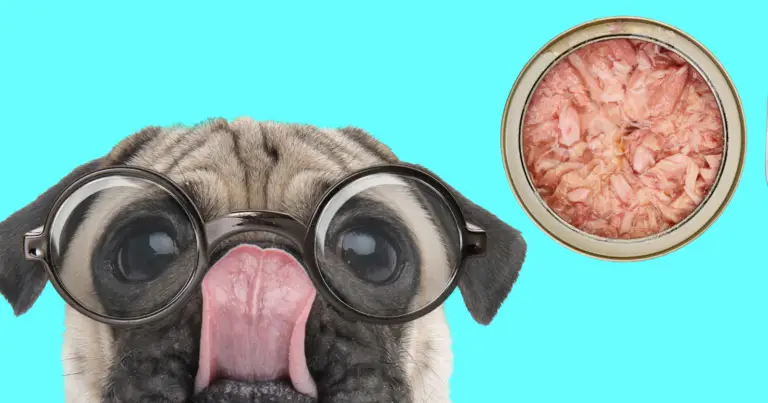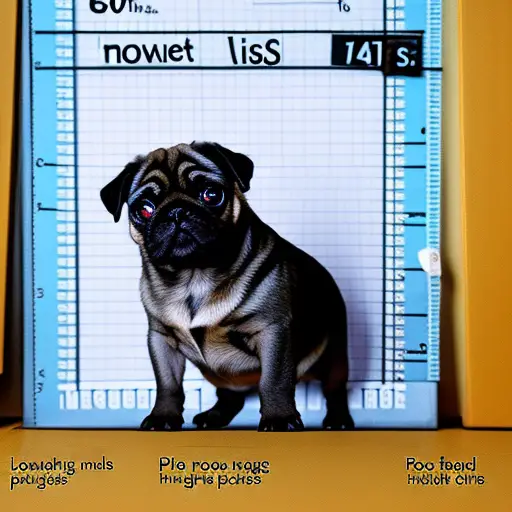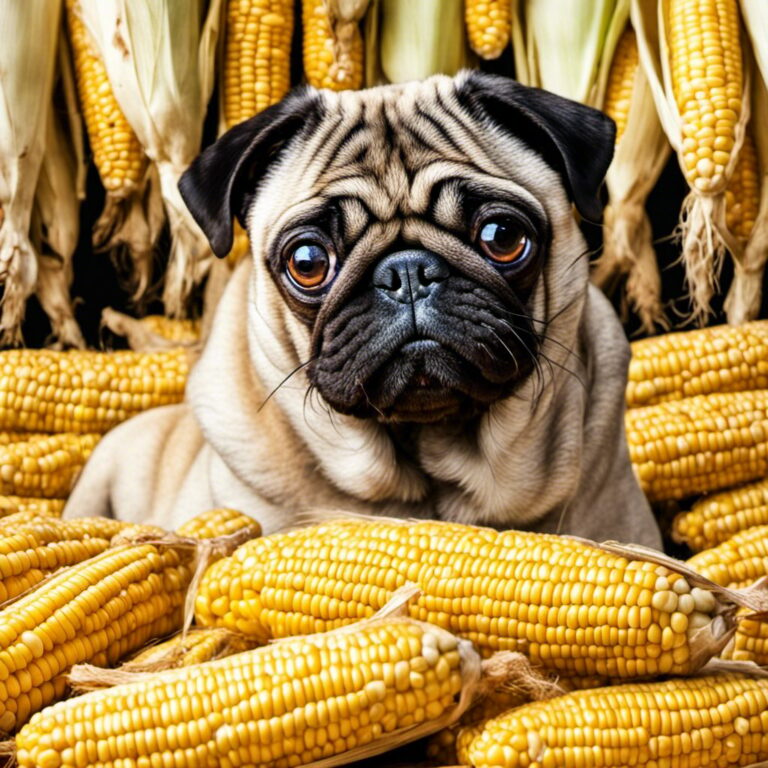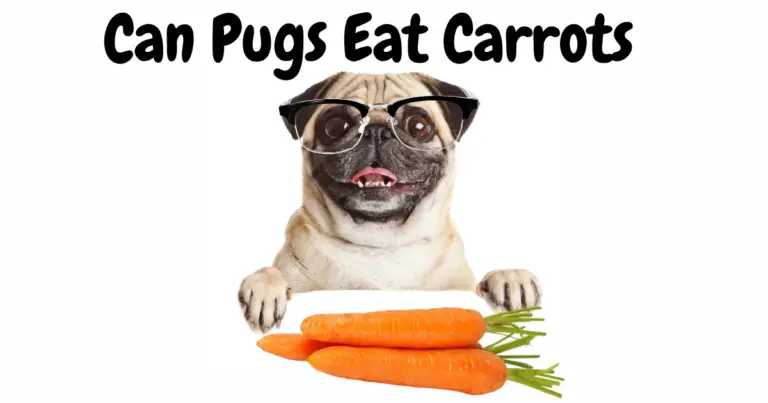Can Pugs Eat Raspberries? Debunking Myths and Unveiling Facts
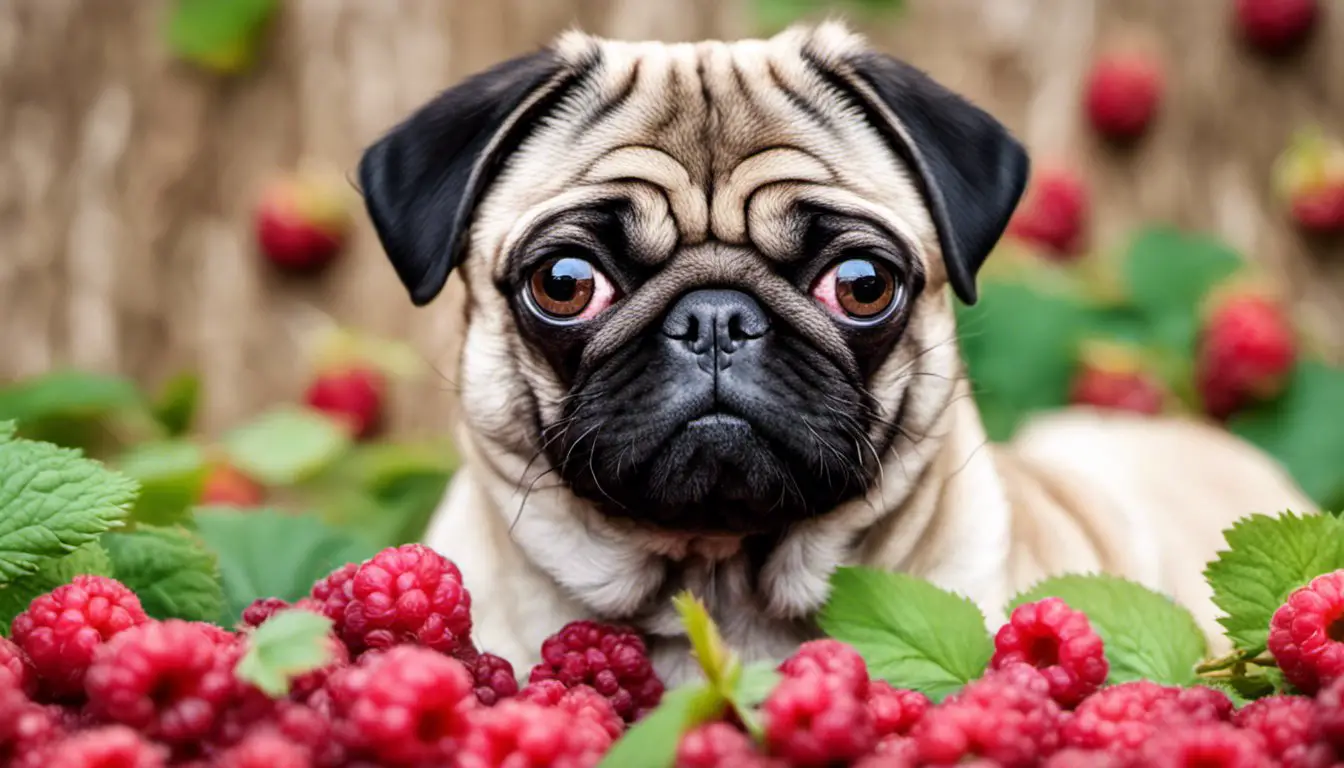
As a pug owner, you might wonder, Can Pugs Eat Raspberries? Good news! Raspberries are indeed a safe and healthy treat for your pug when given in moderation. These delightful berries contain several essential vitamins and minerals, such as Vitamin C, Vitamin K, and antioxidants, which can benefit your canine companion.
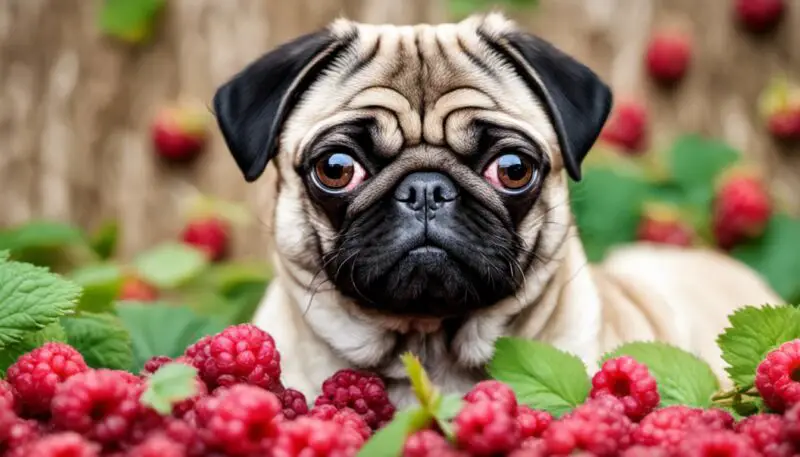
While it’s true that pugs have specific dietary requirements compared to other dog breeds, the occasional raspberry treat can offer a refreshing and nutritious snack. Just remember not to overdo it – too many raspberries may cause stomach upset in your pug. Additionally, remember that not all fruits are suitable for pugs, so it’s crucial to be informed about which ones are safe.
In summary, feel confident giving your pug a few raspberries as a special treat now and then. It’s a delicious and nutritious way to vary their diet while ensuring they receive some additional vitamins and health benefits. Just remember to keep it in moderation, and your pug will enjoy this fruity reward without any adverse effects.
Contents
Table of Contents
Understanding Pugs’ Dietary Needs
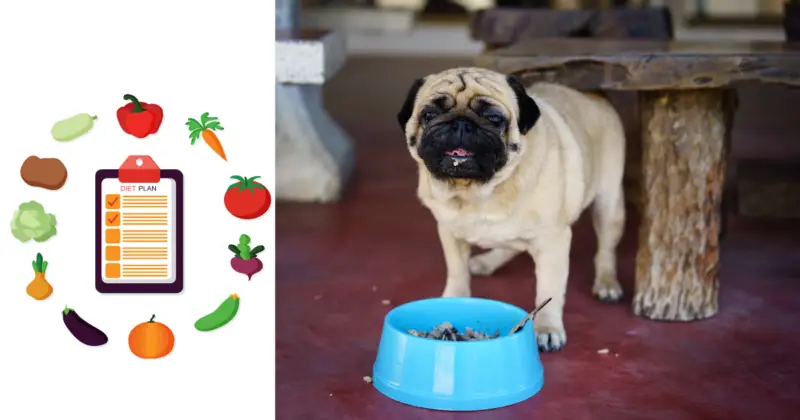
As a pug owner, it’s important to understand your dog’s unique dietary needs. Pugs are small, energetic dogs that require a well-balanced diet to maintain their overall health. Providing them with a diet that is rich in essential nutrients will help prevent obesity and other health issues.
Get The Free Food Eating Guide That Keeps My Pug Happy and Playful Even at 13 Years Old
100% Beginner Friendly & Lists Real Foods Your Pug Can Actually Eat!

When determining the optimal diet for your pug, be sure to consult with your vet. They can help you create a feeding plan considering your pug’s age, weight, activity level, and any existing health conditions. Generally, a pug’s diet should primarily consist of protein, which can be found in both meat and plant sources.
High-quality dog food, such as Royal Canin Breed Health Nutrition Pug Dry Dog Food, is specifically designed for the nutritional needs of pugs. These specialized dog foods often include essential nutrients like proteins, fats, carbohydrates, and vitamins, making them an ideal choice when feeding your dog.
It’s also important to monitor your pug’s weight, as obesity can lead to additional health risks for this breed. To maintain a healthy weight, provide your pug with regular exercise and portion control. Avoid overfeeding or providing excessive treats, as this can hinder your efforts in weight management.
In addition to dry dog food, incorporating fruits and vegetables into your pug’s diet can be beneficial. Be cautious when introducing new foods, as some can harm dogs. For instance, raspberries can be a healthy treat for your pug in moderation, as they are low in calories and high in antioxidants.
Finally, remember that the dietary needs of senior dogs may differ from those of younger pugs. As your pug ages, adjustments may need to be made in their feeding habits to account for changes in metabolism and activity level. Regular check-ups with your vet can ensure that your pug stays healthy throughout all stages of their life.
The Role of Fruits in a Pug’s Diet
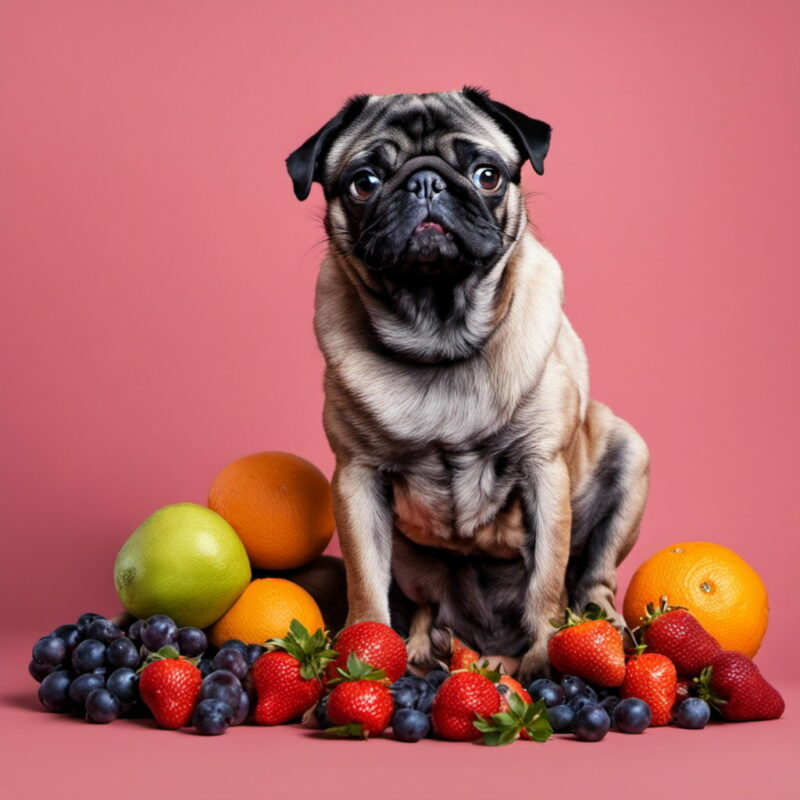
Incorporating fruits into your pug’s diet can offer them a variety of vitamins, minerals, and other essential nutrients to support their overall health. Many fruits are low in calories and nutritional, making them an excellent treat option for your furry companion.
Berries, in particular, are great for pugs as they are packed with antioxidants, fiber, and various vitamins. Raspberries are a suitable option as they can benefit your pug, such as improved digestion and boosted immune system function. Remember to keep portions small, as feeding these dog-safe fruits in moderation is crucial to prevent unwanted side effects like an upset stomach.
You may also consider providing your pug with other types of fruits and vegetables as snacks. Vegetables can be a low-calorie, nutrient-dense snack for your pug, making them a great option for adding variety and a tasty surprise to their regular diet. Some examples include baby carrots, cucumbers, and green beans. Experimenting with different fruits and vegetables will help you find your pug’s preferences while providing that extra nutritional boost.
While fruits can be a healthy addition to your pug’s diet, it’s important to remember their sugar content. Some fruits naturally contain higher amounts of sugar, which can lead to weight gain if fed in large quantities. Always feed fruits in moderation, balancing them with other food sources to ensure a well-rounded and complete diet.
In conclusion, fruits, and especially berries like raspberries, can be an excellent addition to your pug’s diet, offering a variety of health benefits and a delicious treat. Just remember to monitor portions, stick to dog-safe varieties, and maintain a balanced diet for your pug’s overall well-being.
Are Raspberries Safe for Pugs?
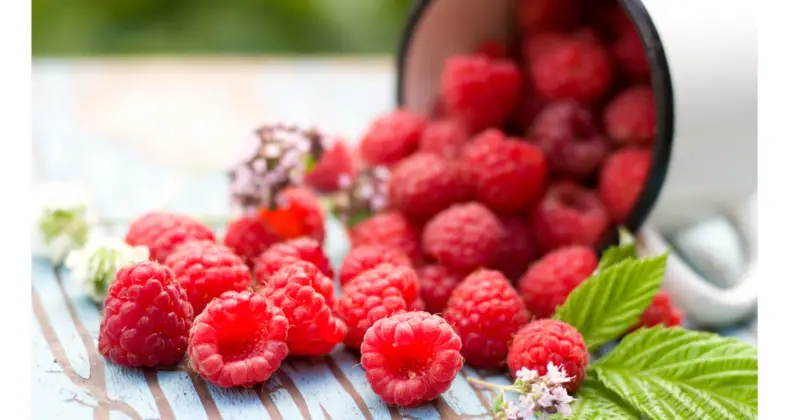
Raspberries are indeed safe for dogs like your pug to eat, but it’s essential to remember that moderation is key. These fruits contain antioxidants, which can benefit pugs, especially senior dogs, due to their anti-inflammatory properties.
However, remember that raspberries also contain small amounts of xylitol, a sugar substitute that can be toxic to dogs. Although the xylitol content in raspberries is minimal, too many raspberries can lead to xylitol poisoning, causing a rapid release of insulin, hypoglycemia, and other health issues in your pug. Therefore, regulating the number of raspberries you offer to your pug is crucial.
Before introducing raspberries or any other fruit into your pug’s diet, it’s advisable to consult with your veterinarian. They will help you determine the appropriate serving size and frequency for your pug, ensuring that it doesn’t adversely affect their overall health.
Be attentive to any changes in your pug’s behavior or health after they consume raspberries. If you notice signs of gastrointestinal distress, such as diarrhea or vomiting, it could indicate that your pug’s digestive system is sensitive to the fruit. In such cases, reach out to your vet for further guidance.
In conclusion, when offered in moderation, raspberries can be a safe and healthy treat for your pug. Don’t forget to consult with your veterinarian to ensure raspberries are a suitable addition to your pug’s diet, and keep an eye out for any potential issues that may arise.
Nutritional Benefits of Raspberries for Pugs

Raspberries offer numerous health benefits for your pug due to their rich content of essential nutrients. These delicious red berries are packed with antioxidants that help protect your pug from potential health issues such as cancer and heart disease.
One of the key advantages of feeding raspberries to your pug is their high fiber content. This helps maintain a healthy digestive system, and preventing constipation or diarrhea, which some pugs might experience.
Raspberries are also a great vitamin C source, which is vital in supporting your pug’s immune system. Vitamin C aids in the prevention of infections and boosts overall health. Additionally, raspberries contain other essential vitamins like vitamin K, vitamin B-complex, vitamin A, and manganese, all of which contribute to the overall well-being of your pug.
The generous amount of potassium found in raspberries helps maintain stable blood pressure, reduces the risk of stroke, and ensures good heart health for your pug. Meanwhile, the magnesium present in these berries aids in bone health and muscle function.
Among other essential minerals, raspberries possess copper and iron, which are crucial for proper red blood cell formation and oxygen transport in your pug’s body. These minerals help maintain your pug’s energy levels and overall bodily functions, ensuring a healthy and happy life.
Lastly, raspberries contain many phytochemicals that provide various health benefits, such as preventing inflammation and the onset of certain illnesses. Incorporating raspberries into your pug’s diet can help them lead healthier lives and potentially increase their longevity.
Raspberries 101-Nutrition and Health Benefits
The Downside of Raspberries for Pugs
While raspberries can be a healthy treat for your Pug, there are some downsides that you should be aware of. Consuming too many raspberries can lead to certain health issues due to their sugar, calorie, and fat content.
Raspberries contain natural sugar, which can contribute to your Pug’s daily caloric intake. Feeding your Pug excessive amounts of raspberries can increase their risk of weight gain and obesity. Obesity can further lead to more serious health complications, like diabetes. Keep raspberries as an occasional treat, and pay attention to the amount you give to your Pug.
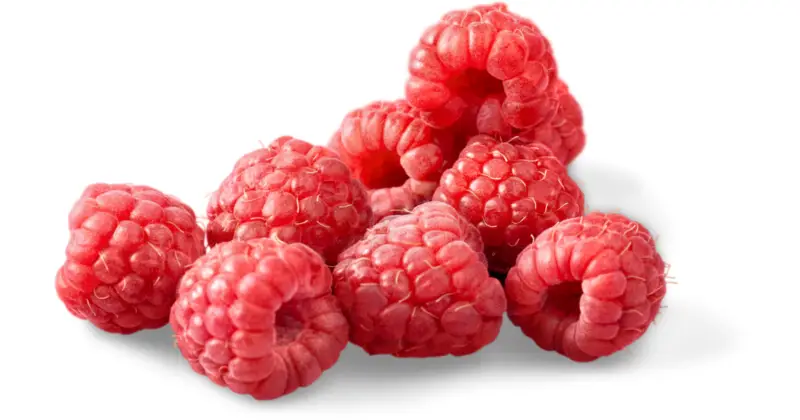
Additionally, raspberries are high in fiber, which is generally good for your Pug’s digestion. However, excessive fiber intake for dogs can lead to gastrointestinal upset, such as diarrhea. Monitoring the amount of raspberries you give is essential to prevent these issues.
Be aware of the risk posed by products containing xylitol, an artificial sweetener often found in sugar-free foods. Xylitol is extremely toxic to dogs and can lead to hypoglycemia, causing symptoms like tremors, seizures, and even death. Always ensure that any raspberries or raspberry-flavored treats you give to your Pug do not contain xylitol.
In conclusion, while raspberries can be a tasty and nutritious treat for your Pug, moderation is crucial. Limiting the amount of raspberries will help prevent potential health issues related to sugar, calories, and fiber content. Also, be vigilant regarding products containing xylitol, as this sweetener is highly dangerous for your pet’s health.
Feeding Your Pug Raspberries Safely
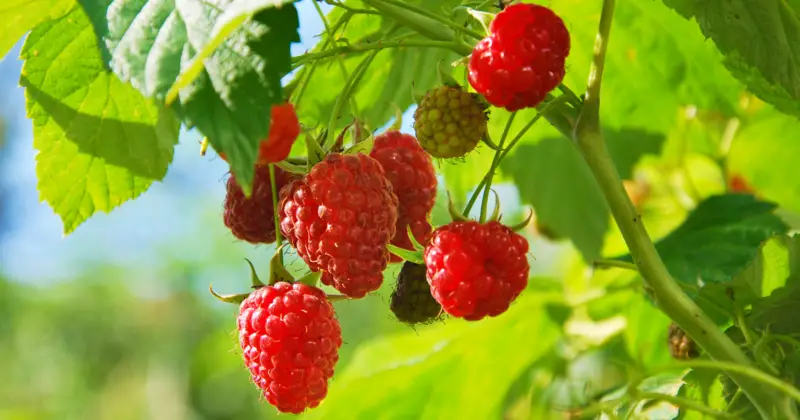
Feeding your Pug raspberries can be a healthy and enjoyable treat, but it’s important to do so safely. Raw raspberries are a great option as they are packed with essential nutrients such as folic acid, which benefits your Pug’s health. While raspberries are sweet, they are low in sugar, making them a suitable treat for your Pug when offered in moderation.
When introducing raspberries to your Pug’s diet, start with a small amount to monitor their reaction. Contact your vet immediately if your Pug experiences any adverse effects, such as an upset stomach or an allergic reaction. Remember to always remove any bones from the fruit before feeding it to your Pug to prevent choking hazards.
Offering raspberries in moderation is key. Overfeeding this fruit can increase cholesterol levels due to the high concentrations of folic acid and other nutrients. Moreover, excessive consumption can cause stomach discomfort in your Pug. Aim to stick to a few raspberries at a time, and always consult your vet if you have concerns about the appropriate serving size for your particular Pug.
If raspberries are a new addition to your Pug’s diet, consider leaving the peel on. The peel is rich in antioxidants and fiber, adding a nutritious boost to the treat. However, if your Pug struggles with digesting the peel or is not interested in eating raspberries with the peel on, you may choose to remove it.
In summary, when feeding your Pug raspberries, opt for raw, sweet raspberries served in moderation. Look for potential health issues and consult your vet for guidance on appropriate serving sizes. Leave the peel on for added nutritional benefits, but remove it if it appears to be an issue for your Pug. Most importantly, always practice safety and care when introducing new treats to your Pug’s diet.
Other Fruits Pugs Can and Cannot Eat
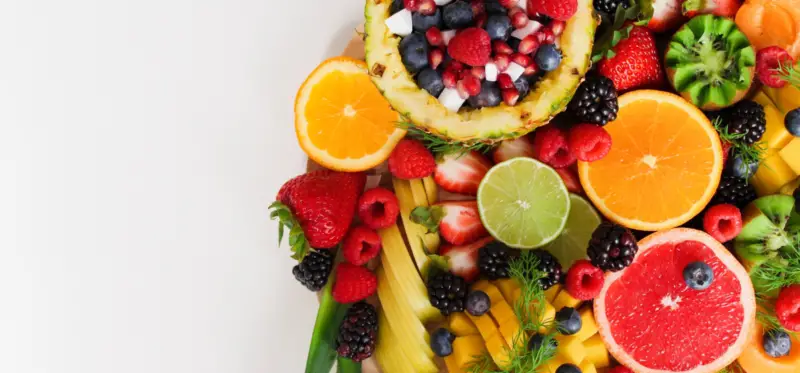
As a pug owner, you might be curious about other fruits your pug can safely consume. While raspberries are a suitable occasional treat, many other fruits can also provide beneficial nutrients. For example, pugs can enjoy either fresh or frozen blackberries and blueberries, which are both high in vitamins, minerals, and antioxidants.
Vegetables like cucumber and kale can be good options, too, as they are low-calorie and provide beneficial nutrients. Remember, you should still prioritize a balanced diet of high-quality dry dog food to keep your pug’s nutrition well-rounded.
Bananas, mangoes, cantaloupe, and oranges can also be given to your pug in moderation. When feeding oranges, make sure to remove the peel and seeds. Similarly, apples and kiwi can be offered if the skin and seeds are removed, which might pose a choking hazard.
On the other hand, several fruits and vegetables harm your pug. Grapes and cherries must be avoided, as they can harm dogs. Similarly, avocados contain a substance called persin, which can be toxic too. Thus, keeping avocados, their peels, and seeds away from your pug is best.
Peaches and other fruits with large pits or seeds should also be avoided, as they can pose a choking hazard or even cause intestinal blockages. When feeding your pug any fruits or vegetables, always remove seeds and cut them into small, manageable pieces to ensure your pug’s safety.
In conclusion, while raspberries and other fruits can be a healthy, occasional treat for your pug, they must be aware of the fruits they can and cannot eat. Always remember to keep it to moderation and consult with your veterinarian if you have concerns or questions about specific foods.
Conclusion: Can Pugs Eat Raspberries
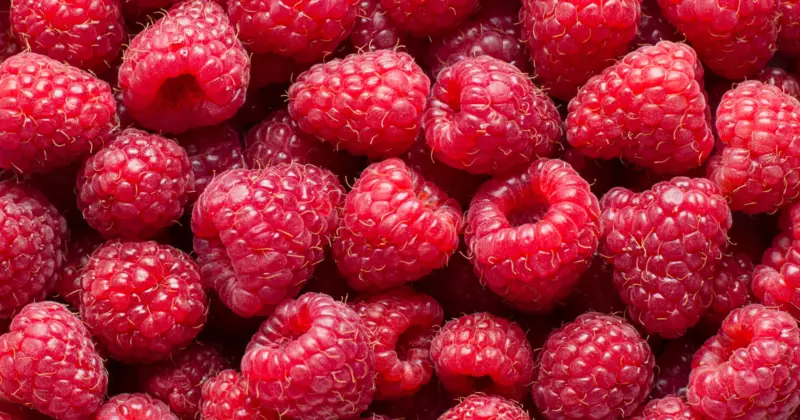
Based on the available information, it’s apparent that pugs can indeed enjoy raspberries as an occasional treat. Raspberries are low in calories and offer health benefits such as vitamins, antioxidants, and fiber. However, it’s important to remember that moderation is key, as too many raspberries can lead to digestive upset or other health problems.
When feeding your pug raspberries, make sure to limit the portion size according to their weight. For example, small dogs like pugs can have two to three raspberries as a treat. Remember that this fruit should not replace a balanced diet; raspberries should only serve as an occasional supplement to their regular meals.
To ensure your pug’s health and well-being, always monitor how they react to new foods, and consult with your veterinarian for tailored advice regarding your dog’s nutritional needs. You can help maintain your pug’s optimal health and happiness by providing a balanced diet and monitoring treat intake.
Frequently Asked Questions
Is it safe for pugs to consume raspberries?
Yes, it is safe for pugs to consume raspberries. These fruits are low in sugar and calories, and packed with antioxidants, vitamins, and minerals that support your pug’s overall health. However, keep in mind that moderation is key to prevent digestive upset.
What quantity of raspberries can a pug eat?
As a guideline, you can give your pug about 1 or 2 raspberries per day as a healthy treat. Giving too many raspberries at once may lead to digestive issues or weight gain, so it’s important to limit the intake of this fruit.
Which berries are safe for pugs to eat?
In addition to raspberries, pugs can also safely eat blueberries and blackberries as long as they are given in moderation. These berries are rich in antioxidants and offer similar health benefits. However, avoid giving your pug chokeberries, as they can be toxic to dogs.
Are there any risks for pugs eating raspberries?
While consuming raspberries in moderation is generally safe for pugs, excessive amounts can lead to digestive upset. It is important to monitor your pug’s reaction to raspberries and adjust the quantity accordingly if any issues arise. Always remove any green parts from the raspberries before feeding them to your pug, as they can be harmful.
Can pugs eat other fruits, like strawberries and blueberries?
Yes, pugs can eat fruits like strawberries and blueberries in moderation. Both fruits are rich in antioxidants and offer additional vitamins and minerals. However, remember to keep the quantity under control to avoid any unwanted health issues.
What are the potential benefits of raspberries for pugs?
Raspberries provide several health benefits for pugs, including supporting their immune system and digestive health. These fruits are packed with antioxidants that may help protect your pug against health issues such as cancer and heart disease. Additionally, the fiber content in raspberries can aid in promoting healthy digestion.

